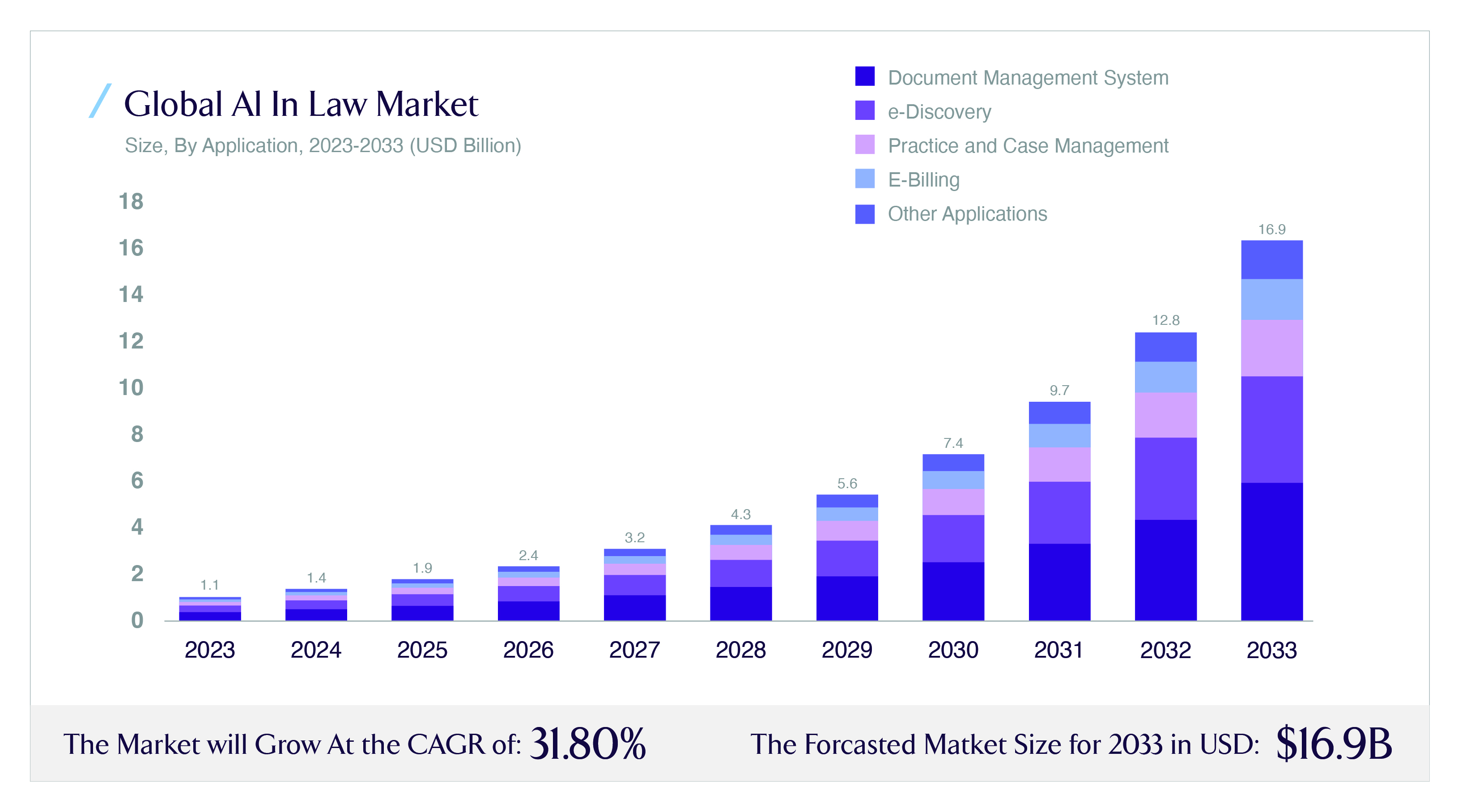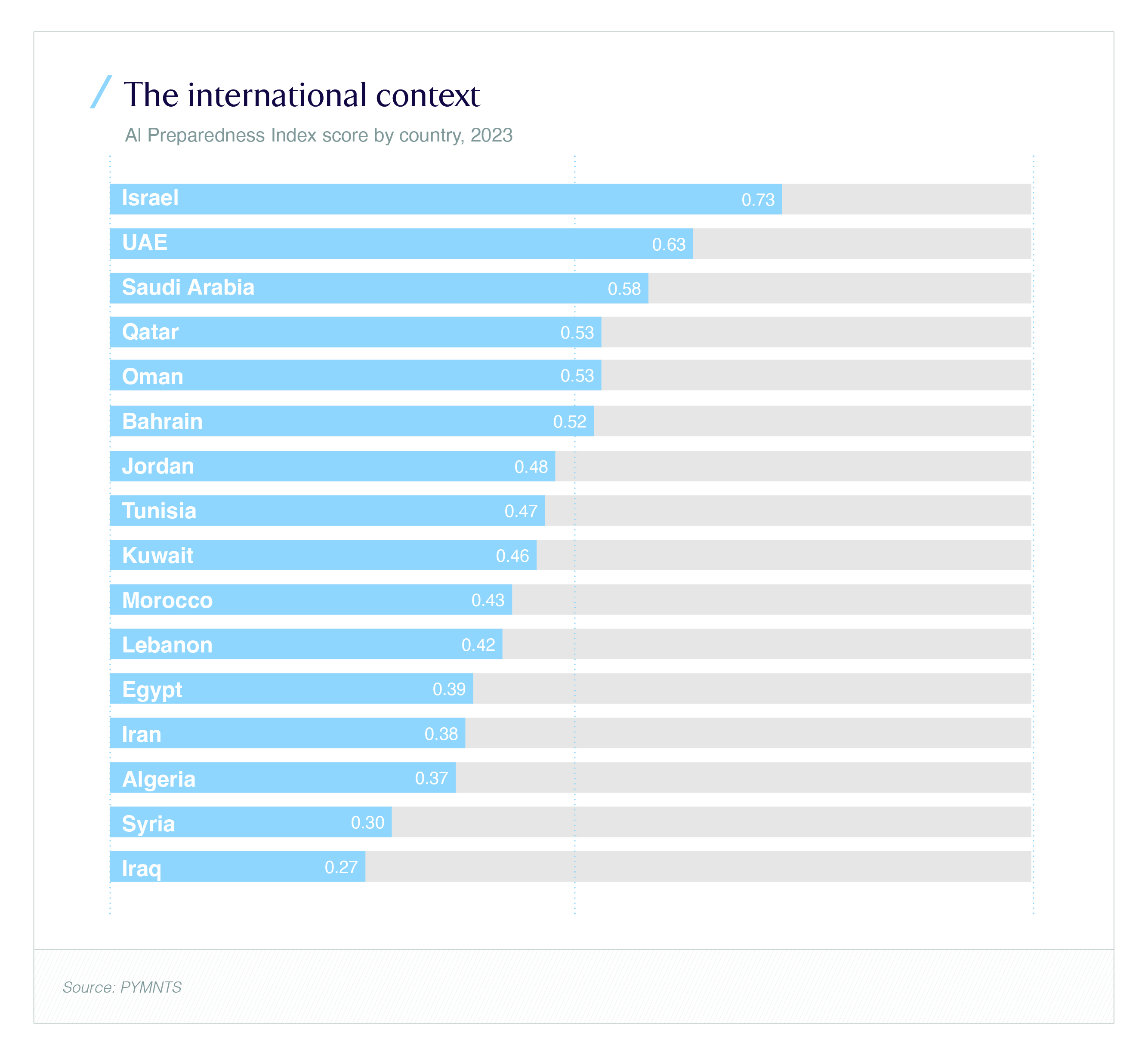In April 2025, Saudi Arabia enacted a new law, the Global AI Hub Law. The legislation is expected to turn the Kingdom into a significant player in the international fields of AI and data governance. The Communications, Space, and Technology Commission (CST) drafted the law and presented a new concept, so-called data embassies. These embassies allow foreign nations to store and process data in Saudi Arabia without necessarily transferring the data to Saudi Arabia and remain under their own laws. Through its geographic position and a distinctive regulatory framework, Saudi Arabia aims to become a leader in data sovereignty and technologies related to AI. This legislation has the potential to greatly alter the way multinational enterprises manage data, comply with it, and conduct AI studies in the Middle East and other regions.

The legislation comes at the opportune time. According to a McKinsey report, the global artificial intelligence market is going to grow at a compound annual growth rate (CAGR) of 38.1%, hitting $1.5 trillion by 2030. Saudi Arabia is interested in accessing this huge market and diversifying its economy, which has been oil-based since the early days, by developing a legal framework that would favour AI-based enterprises and data sovereignty. The Global AI Hub Law is an element of the Kingdom Vision 2030, a project to change the economy of the country and become a regional and global leader in AI and technological progress.
Legal Framework and Public Consultation

Source: PYMNTS
The Saudi Global AI Hub Law establishes three broad categories of data centers established in the Kingdom, namely National Hubs, International Hubs, and Data Embassies. The two types have their own purposes and suit their own legal and operational requirements.
National Hubs: Data centers that are under the control of Saudi Arabia according to its own laws are called national hubs. They will contain domestic data such as government data, private data, and national AI research material. The legal protection of data in Saudi Arabia has developed rapidly. In 2021, the Kingdom implemented the first personal data protection law. The law preconditioned the more sophisticated regulatory framework, the Global AI Hub Law.
International Hubs: International hubs are for foreign firms which wish to host their data and operate in Saudi Arabia and retain their own legal regulations. This concept is termed a data embassy. Data embassies will provide international companies a legally-compliant location to base their data centers, which matches their home country's data regulations. This is flexible, and it minimizes the burden of regulation that is usually associated with cross-border data transfers.
Data Embassies: The most innovative aspect of the law is a data embassy. It is a dedicated center where other nations can locate their data centers in Saudi Arabia without losing control of the legal nature of their data. Saudi Arabia will establish an environment whereby data may be stored, processed, and governed within the jurisdiction of the country of origin of the data. This will make Saudi Arabia a hub of data storage and AI research and bring international businesses that require these services.
The draft law was put up for consultation with the general population until May 14, 2025, where different stakeholders such as multinational corporations, legal experts, and governmental bodies had a chance to review and comment. The consultation process was necessary to refine the legal framework and make sure that the resultant law would be internationally acceptable and at the same time address the specific objectives of Saudi Arabia. The law is likely to be completed and passed into law at the end of 2025 or the beginning of 2026 after the consultation period.
Comparative Analysis
The model of data sovereignty and AI governance proposed by Saudi Arabia is a new way of doing things compared to the frameworks that are already established in other jurisdictions, including the European Union and Singapore. The legal framework of these areas offers valuable information on the way the Saudi Arabia model can be developed and what advantages it can have for multinational corporations.
The General Data Protection Regulation (GDPR) of the European Union is a high standard of data protection and has far-reaching consequences for businesses that operate in, or process data of EU member states. Companies are required to adhere to stringent data protection requirements under GDPR such as restrictions on the transfer of personal data to third parties outside the EU to countries with no similar data protection laws. Although GDPR can be regarded as one of the most complete data protection regulations in the world, it imposes a significant compliance cost on businesses that want to enter the EU market. Comparatively, the Saudi law is more accommodating of foreign firms as it gives them the freedom to conduct their businesses using their own laws in the Kingdom.
Singapore has become a pioneer nation in Asia as far as data protection and cross-border data flows are concerned. The Personal Data Protection Act (PDPA) permits the transfer of personal data to other countries outside Singapore as long as there is an adequate safeguard. Nonetheless, the regulatory environment in Singapore is more geared towards the need to make sure that businesses adhere to the principles of data protection, as opposed to allowing foreign jurisdictions to operate under their own laws. The introduction of data embassies by Saudi Arabia is a more customized approach to international business, which offers a flexible regulatory environment that also complies with the legislation of the home country.
The model presented by Saudi Arabia is likely to appeal to companies that are interested in reducing the level of regulatory complexity and entering new markets. Indeed, Synergy Research Group indicates that more than 60 percent of all data centers in the world will be in North America, Europe, and Asia by 2024. But with the new laws, Saudi Arabia is becoming more appealing and there is a high likelihood of a change in the global data center environment with more firms viewing the Middle East as a strategic data hosting destination.
Consequences for Multinational Tech Companies
The Global AI Hub Law of Saudi Arabia will have significant implications for multinational technology companies that have operations across the world. The legislation opens up opportunities and challenges to these companies as they seek to increase their operations and align their data strategies to the changing regulatory environment.
Data sovereignty is an important benefit to multinational corporations such as Amazon Web Services (AWS), Microsoft Azure, and Google Cloud, which can have their data centers run under the laws of their country of origin and be located in Saudi Arabia. This organization enables firms to comply with the growing data protection standards in their respective domestic markets without sacrificing efficiency in their operations. As an example, the California Consumer Privacy Act (CCPA) stipulates that companies must make sure that personal information is processed in a way that does not violate the laws of the state, even when the data is stored in a different country. The new law in Saudi Arabia will enable companies to conduct their operations in a way that complies with the laws of the U.S. or the EU and take advantage of the expanding market in Saudi Arabia.
The geographical position of Saudi Arabia as a junction between Europe, Asia, and Africa is the reason why the country is a perfect place to host global data centers. The cloud market in the Middle East is a fast-growing market with the report by MarketsandMarkets stating that the cloud market will grow at a rate of 25.6 percent annually between 2020 and 2025. The ambition of Saudi Arabia to become a global hub of AI will also make it even more appealing to multinational technology organizations seeking strategic positions in the region.
Saudi Arabia has been investing so much in technology and AI as part of its Vision 2030 project. To date, the Kingdom Public Investment Fund (PIF) has already invested billions of dollars in technology, such as AI research, and cloud computing infrastructure. The interest in AI research and development in the Kingdom creates a great opportunity for partnership, investment, and market expansion of multinational tech companies.
Challenges
The flexibility that the concept of data embassies brings also creates a legal complexity. Multinationals will have to observe the laws of Saudi Arabia as well as the data protection laws of their countries of origin. It is operationally and financially demanding to manage operations in multiple legal systems. The regulatory environment in Saudi Arabia is not well developed. Although the draft law presents a complete framework, it is not clear how data embassies will be realized. As the law advances and is completed, businesses will have to remain updated on the changes that could affect their businesses.
Conclusion
The draft Global AI Hub Law of Saudi Arabia is an ambitious and revolutionary move that may transform the international data and AI environment. Saudi Arabia is a promising location that multinational tech giants are interested in operating in the Middle East with the introduction of data embassies and the flexible legal framework for foreign companies. As the AI market is projected to increase exponentially over the next few years, the Kingdom's strategic vision of becoming a leader in AI and data governance will make it a critical player in the international market.
When the law is in the consultation stage and finally enacted, it will be important that multinational companies find their way through the intricacies of the new regulatory environment. Saudi Arabia is developing an example that may shape the laws of data governance in other countries by providing flexibility, investment opportunities, and a solid legal framework on data sovereignty. As the AI and data economy continue to expand exponentially, Saudi Arabia is strategically poised to become a global hub of AI, whereby major international investments will be attracted and the future of AI and data governance will be shaped in the coming years.


















